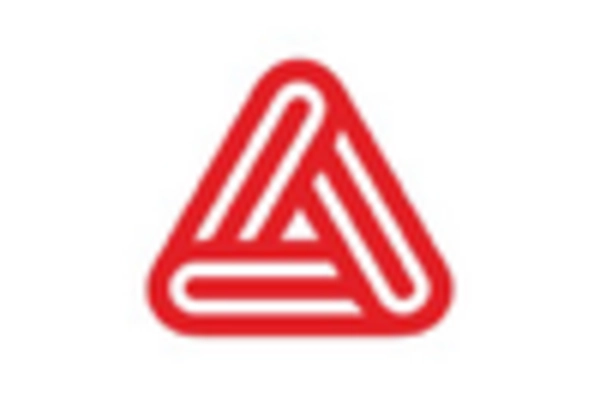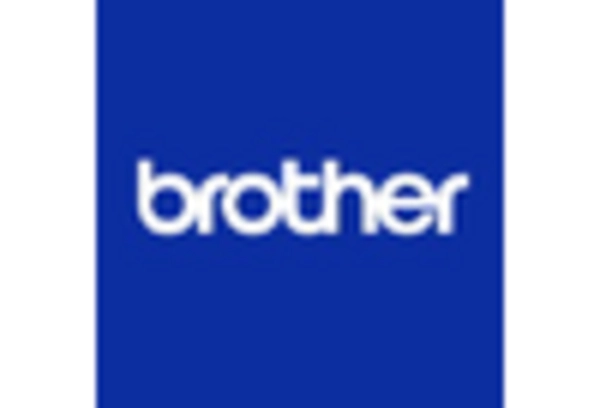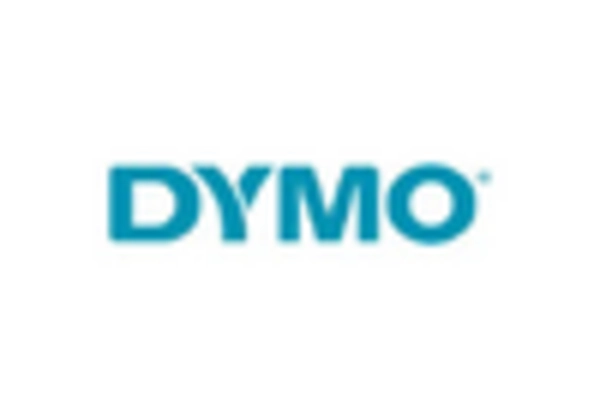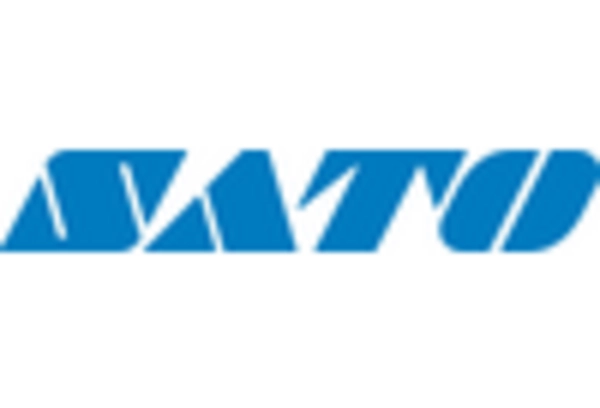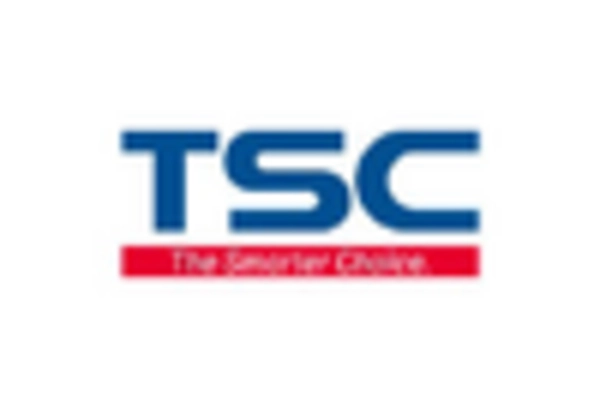Growth of Retail Sector
The retail sector in Brazil is experiencing notable growth, which is likely to drive the direct thermal-labels market. As retail sales increase, the demand for efficient labeling solutions becomes more pronounced. In 2025, the retail market is projected to reach approximately $100 billion, indicating a robust environment for label manufacturers. Retailers are increasingly adopting direct thermal-labels for their ease of use and cost-effectiveness. This trend is particularly evident in supermarkets and convenience stores, where quick labeling is essential for inventory management and pricing. The direct thermal-labels market is expected to benefit from this growth, as retailers seek to streamline operations and enhance customer experience through efficient labeling solutions.
Sustainability Initiatives
Sustainability initiatives are gaining traction in Brazil, influencing the direct thermal-labels market. Companies are increasingly seeking eco-friendly labeling solutions to align with consumer preferences for sustainable products. The direct thermal-labels market is likely to benefit from this shift, as these labels often require less energy and resources during production compared to traditional labeling methods. Furthermore, advancements in biodegradable materials for label production are emerging, which could appeal to environmentally conscious consumers. As businesses adopt sustainable practices, the demand for direct thermal-labels that meet these criteria is expected to grow, reflecting a broader trend towards sustainability in the packaging and labeling industry.
Regulatory Compliance and Safety Standards
In Brazil, regulatory compliance and safety standards are becoming increasingly stringent across various industries, which may positively impact the direct thermal-labels market. Industries such as food and pharmaceuticals are required to adhere to specific labeling regulations to ensure consumer safety. The direct thermal-labels market is well-positioned to meet these requirements due to its ability to produce high-quality, durable labels that comply with industry standards. As companies strive to avoid penalties and enhance product traceability, the demand for compliant labeling solutions is expected to rise. This trend indicates a growing reliance on direct thermal-labels as businesses prioritize adherence to regulations while maintaining operational efficiency.
Technological Integration in Manufacturing
The integration of advanced technologies in manufacturing processes is transforming the direct thermal-labels market in Brazil. Automation and digital printing technologies are enhancing production efficiency and reducing costs. As manufacturers adopt these technologies, they can produce high-quality labels at a faster rate, meeting the increasing demand from various sectors. The direct thermal-labels market is likely to see a shift towards more innovative solutions, such as smart labels that incorporate QR codes and RFID technology. This technological evolution not only improves operational efficiency but also enhances the functionality of labels, making them more appealing to businesses looking to optimize their labeling processes.
Increase in Logistics and Supply Chain Activities
Brazil's logistics and supply chain sector is expanding, which appears to be a significant driver for the direct thermal-labels market. With the rise in e-commerce and the need for efficient distribution channels, logistics companies are increasingly utilizing direct thermal-labels for shipping and tracking purposes. The logistics market in Brazil is projected to grow at a CAGR of around 7% from 2025 to 2030. This growth necessitates reliable labeling solutions that can withstand various environmental conditions during transportation. Direct thermal-labels offer durability and clarity, making them suitable for logistics applications. As logistics operations become more complex, the demand for effective labeling solutions is likely to increase, further propelling the direct thermal-labels market.



